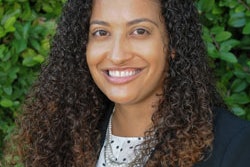It was a long and winding road that led Dr. Devaka Premawardhana to northern Mozambique and anthropological research among the Makhuwa people.
When Premawardhana first visited Mozambique eight years ago, he wasn’t seeking a particular community of any sort. Following leads he received from members of various religious communities that he encountered, his path gradually took him farther and farther north, until he found himself living among the Makhuwa.
“We have an opportunity when we study parts of the world that we’re quite unfamiliar with to rethink ourselves and to question our own positions and presuppositions,” Premawardhana says.
The communities that Premawardhana encounters in northern Mozambique are highly mobile, resisting historic and contemporary efforts to settle them in a single place. As they are mobile in place, so are they mobile in their religious persuasions. They occupy a liminal sort of space, Premawardhana says, at the fringes of multiple faiths, including their ancestral religions, Christianity, and even Islam.
When he is not engaged in anthropological research overseas, Premawardhana is an assistant professor of religion at Colorado College, in Colorado Springs, Colorado, where he specializes in Christianity in the global south. While Christianity is on the decline in its historic strongholds of Europe and North America, largely due to secularization, it is on the rise in Africa, Asia and Latin America.
Pentecostalism, a brand of Christianity with a particular emphasis on the personal experience of the divine, is thriving in many parts of the global south, and particularly in sub-Saharan Africa.
In the communities of northern Mozambique where Premawardhana has focused his anthropological research, however, Pentecostalism have failed to take root to the same extent among the Makhuwa with whom he worked. It’s failure to do so, Premawardhana argues, has to do with the transient nature of life in that particular part of the world.





















